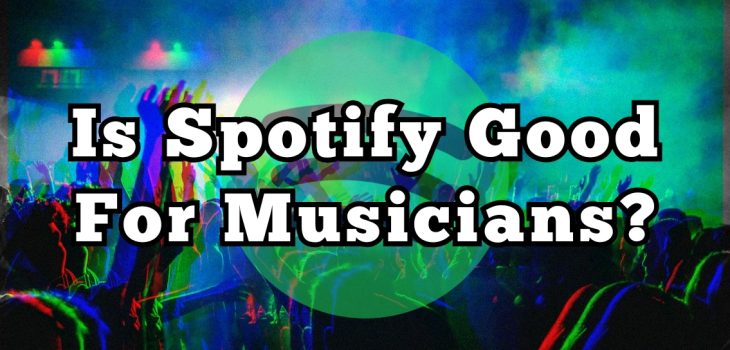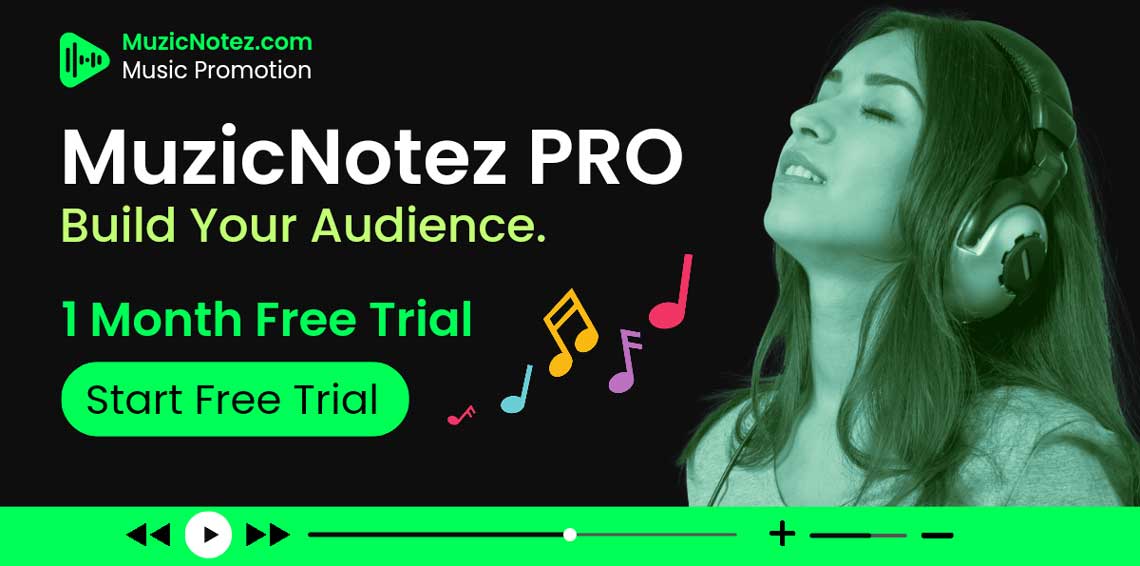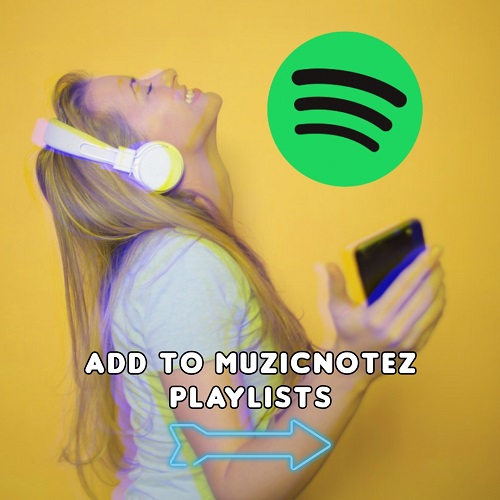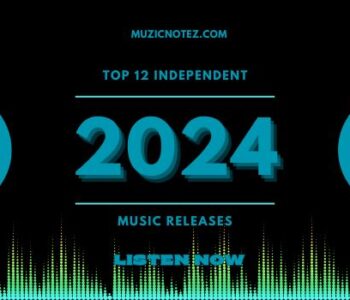 Headlinez
Headlinez
Spotify changed the music industry, but is it for the best?
If Spotify is good or bad for the music industry is a big debate among musicians. But one thing is for sure, the streaming giant is here to stay, and it changed the music industry forever. So if you like Spotify or not, you need to adapt and change to get the most out of it and take advantage of it. The problem musicians have with Spotify, is the fact that it makes huge profits off the hard work of musicians, without really paying them their fair share. Spotify founders and heads will say that they’ve given the artists a huge platform to share their music though. There’s no doubt that musicians these days make less from actually selling their music than back in the day. The real revenue streams come from playing live shows, selling merch and other sponsorships.
So how did Spotify start?
Spotify was founded by Daniel Ek and Martin Lorentzon in 2006. Spotify started as a solution to the music piracy problem that was prevalent at the time. The founders, Daniel Ek and Martin Lorentzon, recognized that there was a growing demand for a legitimate, easy-to-use music streaming service that would provide users with access to a vast library of songs. With this in mind, they developed Spotify as a platform that would allow users to stream music on demand, rather than having to download it illegally.
After building a team of top engineers, Spotify officially launched in Sweden in 2008, and quickly gained popularity across Europe and the rest of the world. The company has since evolved into a major player in the music streaming industry, offering not only a library of millions of songs, but also podcasts, live streaming concerts, and a range of other features. Today, Spotify is available in over 80 countries and has over 345 million monthly active users.
So initially, the launch of Spotify was a good thing for musicians, it was an answer to the growing problem of piracy which so many artists spoke up against. Plus it allowed an easy way for artists to listen and share new music that was offically connected to the artists. Plus, it’s traceable, and allows artists to further build their fan base.
Is Spotify Good or Bad for Musicians?
The impact of Spotify on musicians is a matter of debate and can be seen from different perspectives. It easily connects musicians with a massive fan base and allows artists to share there new releases digitally. However, musicians don’t reap much reward via the royalties.
PROS of Spotify for Musicians:
- Exposure: Spotify provides musicians with a platform to reach a large and diverse audience. This can be particularly beneficial for independent artists who may not have had a lot of exposure otherwise.
- Being added to a big playist is a huge benefit for musicians and provides real exposure. Add to our main playlist here.
- Revenue: Spotify is a source of revenue for musicians, with artists receiving royalty payments for their streams. Although the royalty rates have been criticized by some as being too low, for many musicians, this still represents a significant source of income.
- Data: Spotify provides musicians with valuable data about their listeners, including demographics and listening habits. This information can be used to help musicians make informed decisions about their music and career.
CONS of Spotify for Musicians:
- Low royalty rates: Some musicians have criticized Spotify for paying low royalty rates, arguing that they receive a relatively small amount of money for each stream. This has led to calls for the company to increase its royalty rates.
- Limited control: Musicians have limited control over how their music is presented on Spotify, with decisions about playlist inclusion and promotional opportunities being made by the platform.
- Competition: Spotify has increased competition in the music industry, with more and more musicians vying for attention and streams. This can make it harder for artists to stand out and build a following.
On one hand, Spotify has provided a new source of revenue for many musicians. Before the advent of music streaming services, musicians mainly made money from sales of CDs and digital downloads. However, with the decline of physical media and the rise of streaming, Spotify has become an important source of income for many musicians. This is especially true for independent artists who don’t have the ability to reach a wide audience without a major label pushing them.
On the other hand, some musicians and industry experts have criticized Spotify for paying low royalty rates to artists. The amount of money that artists receive from Spotify streams is based on a complex formula that takes into account the number of streams, the country in which the streams occurred, and other factors. Some artists have argued that the royalty rates are too low and that they receive a relatively small amount of money for each stream.
Overall, it can be said that the impact of Spotify on musicians is mixed. While it has provided a new source of income for some, others have criticized the company for paying low royalties. Nevertheless, the rise of music streaming has had a significant impact on the music industry as a whole, and Spotify remains one of the most popular and widely used music streaming services in the world. So if you’re not on Spotify, you’re simply missing out unfortunately.
Who makes the money from Spotify streams?
Major Labels:
It’s difficult to determine exactly how much major labels make from Spotify, as this information is not publicly disclosed. However, it’s estimated that major labels receive approximately 50% of Spotify’s total revenue, which was approximately $2.7 billion (€2.2 billion) in 2020.
Additionally, revenue received by major labels from Spotify is then distributed among the various parties involved in the production and distribution of the music, including the artists, songwriters, producers, and others.
The Musicians:
Again… the amount of money that artists make from Spotify streams depends on a number of factors, including the number of streams, the country in which the streams occurred, and the artist’s specific contract with Spotify.
On average, artists receive approximately $0.0084 per stream on Spotify. However, this figure can vary greatly depending on factors such as the popularity of the artist and more. So basically, on average an artist would need 11, 905 streams to earn $100.
Spotify Yearly Profits:
Spotify’s net profit (also known as net income) is the amount of money that the company earns after accounting for all of its expenses, including costs for operations, marketing, and other expenses.
In recent years, Spotify’s net profit has been volatile, with the company reporting both significant losses and modest profits in different years. For example, in 2020, the company reported a net loss of approximately $530 million (€437 million), despite generating approximately $2.7 billion (€2.2 billion) in revenue.
It’s important to note that the net profit of a company like Spotify can be influenced by a wide range of factors, including its overall growth, the competition in the market, and the success of its various products and services.
Additionally, the company’s net profit can be impacted by investments in research and development, marketing and advertising, and other initiatives aimed at expanding its business.
Overall, while it’s difficult to predict the exact net profit of Spotify in a given year, the company has established itself as one of the largest and most popular music streaming services in the world, and its financial performance is closely watched by investors, analysts, and others in the industry. But with reporting losses, can Spotify afford to pay musicians more? If they pay musicians more royalties, it might bankrupt the streaming giant. Then artists lose an essential tool.
Spotify is a very useful tool for promoters like us to plug new music.
Every review or interview we feature in our magazine, features a widget to instantly listen to the artists new release via Spotify and or YouTube. Without that very easy way to embed a track in to our magazine to stream the artists music, the readers in our magazine would miss out on the chance to immediately listen to the music. This would likely lead them to miss out, as they typically won’t click away to go listen elsewhere. Readers want to listen right away, and have become accustomed to the convenience. Artists need to take advantage of every opportunity they have, especially independent artists. Easily allowing fans to listen to the music right away increases the odds of them becoming new fans of that artist.
Plus, it allows us, and fans, the ability to further share the music with a quick link to Spotify easily. Allows them to add an artists new track to their playlist, to then keep listening to and allowing others a chance to find it.
On top of this, we get to listen to artists music right away through an easy streaming link from Spotify, which is so much easier then being sent some audio file.
Promote your Spotify track »
So in conclusion…
We definitely feel like the benefits Spotify provides musicians outweighs the problems. In this new digital media age of the music industry, everybody needs to adapt. If you don’t adapt, you fall behind and get lost in the crowd. We definitely think Spotify should increase royalty rates for musicians, but that’s pretty easy to say while sitting here. We don’t know exactly how much they spend on their massive staff to keep the program running. Or how much they spend on marketing to create the huge fan base for musicians to receive the huge number of streams. They have provided a cutting edge app that connects fans to musicians and visa versa. It allows us to find new music every single day, and to promote that music easily and effectively.
If you’re for or against Spotify, what we can all agree on is that it’s here to stay. They have become too big to fail (regardless of reporting profit losses). So it’s better to find a way to best utilize Spotify then do what Neil Young famously did when he pulled the PR stunt of pulling his music from Spotify. How did this benefit him? Did it hurt Spotify at all? All it did was further disconnect Young from a whole world of music fans.
So we hope artists embrace the new world of possibilities that Spotify provides. Just another way that independent artists can find success without a major label. Further balancing the playing field in the music industry, tipping the scales to musicians.














